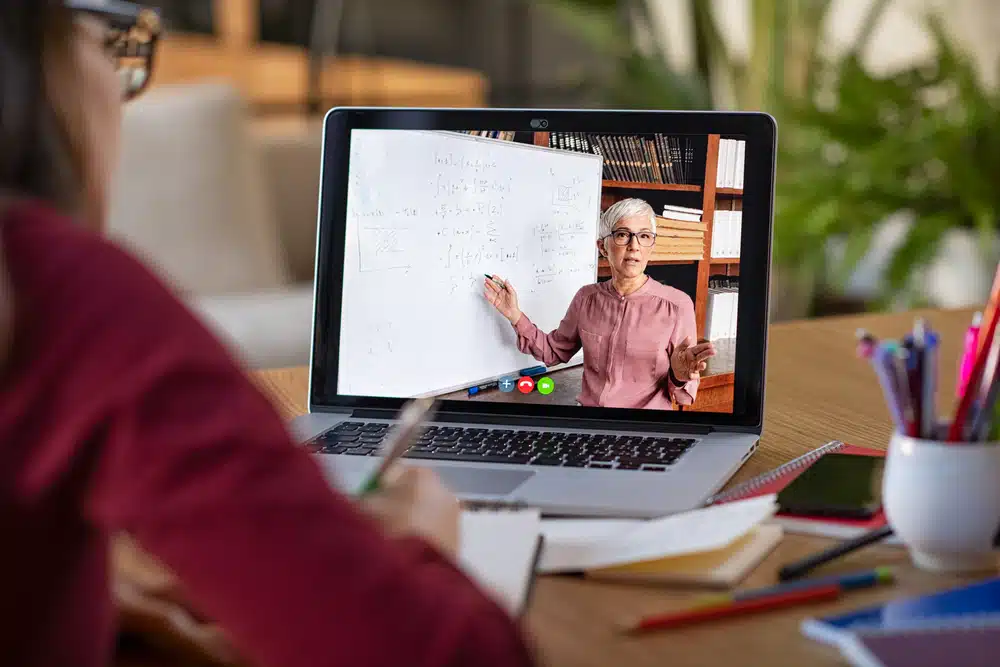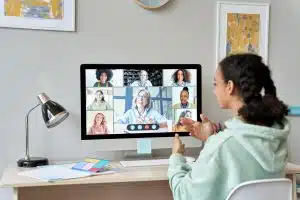Free Online Courses at UChicago
The world of education is constantly evolving, and free online courses at UChicago are a brilliant example. These offerings bring accessible, top-tier education right to your fingertips. Whether you’re looking to gain new skills or simply enrich your intellectual life, there’s something for everyone. Don’t miss out—explore the courses today and take your learning experience to the next level!
Understanding the Basics of UChicago’s Online Education
Known for its rigorous academics and commitment to free and open inquiry, UChicago presents all these qualities in its online education. Just like their esteemed on-campus programs, UChicago’s online courses uphold the same quality and depth of materials.
The Importance of Online Learning
In the constantly evolving world, online education plays a critical role in delivering information and knowledge worldwide. It eliminates geographical barriers and brings high-quality education to everyone with an internet connection. Consequently, it improves the student’s ability to adapt to different learning environments, embracing a global perspective.
Online learning offers a flexible and accessible way for individuals to pursue their educational goals. Whether it’s a working professional seeking to enhance their skills or a student who wants to explore new subjects, UChicago’s online courses provide a convenient platform to acquire knowledge and expand intellectual horizons. With the advancement of technology, online education has become increasingly interactive and engaging, offering a rich and immersive learning experience.
Moreover, online learning promotes self-discipline and time management skills. Students have the freedom to set their own pace and study at times that suit their schedules. This flexibility allows individuals to balance their personal and professional commitments while pursuing their educational aspirations. Additionally, online courses often foster a sense of independence and self-motivation, as students take responsibility for their own learning journey.
How UChicago’s Online Courses Work
UChicago’s online courses mirror the curricula of their on-campus counterparts. Students follow a structured syllabus, participate in interactive discussions, complete assignments, and undergo assessments to gauge their understanding of the course material. The courses are facilitated by UChicago’s esteemed faculty, ensuring that students receive the same quality of education they would receive on campus.
UChicago’s online courses utilize cutting-edge technology to create an immersive and collaborative learning environment. Through virtual classrooms and discussion boards, students can engage in meaningful interactions with their peers and instructors. These platforms enable students to share ideas, ask questions, and receive feedback, fostering a sense of community and intellectual exchange.
Furthermore, UChicago’s online courses incorporate a variety of multimedia resources to enhance the learning experience. From interactive videos and simulations to online libraries and research databases, students can access a wealth of information and tools to deepen their understanding of the subject matter. The online platform also allows for seamless integration of multimedia elements, making the learning process more dynamic and engaging.
UChicago’s commitment to academic excellence extends to its online education programs. The university ensures that its online courses undergo rigorous quality assurance processes to maintain the same standards as its on-campus offerings. Faculty members undergo specialized training to effectively deliver online instruction and provide personalized support to students. UChicago’s dedication to providing a comprehensive and enriching educational experience is evident in its online courses.
Diverse Course Offerings at UChicago
UChicago’s online courses span a diverse spectrum of disciplines, designed to cater to wide-ranging interests and professional needs. Whether you’re passionate about the humanities, social sciences, business, economics, or science and engineering, UChicago has a course for you.
Humanities and Social Sciences Courses
In fields like literature, history, philosophy, and sociology, UChicago’s online courses offer a unique opportunity to delve into complex societal and cultural issues. These courses are taught by experts in their respective fields, which tackle thought-provoking concepts and discuss the big questions that shape our society and culture. Explore the works of renowned authors, analyze historical events through different perspectives, engage in philosophical debates, and gain a deeper understanding of the social structures that shape our world.
Immerse yourself in the world of literature with courses that explore the works of Shakespeare, delve into the intricacies of modernist literature, or analyze the impact of postcolonial literature. Uncover the hidden stories of history through courses that examine ancient civilizations, major world events, and the lives of influential figures. Engage in philosophical discussions about ethics, morality, and the nature of reality. Study the impact of social structures and institutions on individuals and communities, and explore the dynamics of power, inequality, and social change.
Business and Economics Courses
The online courses in Business and Economics offer a robust journey into the vital aspects of the global economic landscape. Whether you’re a budding entrepreneur, a finance enthusiast, or simply interested in understanding the forces that drive our economy, these courses will provide you with the knowledge and skills to navigate the business world.
Learn about business theories and models, explore the intricacies of financial management, and gain insights into market dynamics and consumer behavior. Understand the role of economics in decision-making processes and explore the impact of economic policies on businesses and individuals. Dive into the world of entrepreneurship and learn how to develop innovative business ideas and strategies. Whether you’re interested in starting your own business or advancing your career in the corporate world, these courses will equip you with the tools you need to succeed.
Science and Engineering Courses
UChicago’s online science and engineering courses drive learners into the frontier of scientific knowledge and technological advancement. Whether you’re fascinated by the mysteries of the universe, the complexities of the human body, or the innovations that shape our modern world, these courses will provide you with a solid foundation in the fundamental principles of physical sciences, biological sciences, and engineering protocols.
Explore the wonders of physics, chemistry, and astronomy as you unravel the secrets of the cosmos. Dive into the world of biology and learn about the intricate mechanisms that govern life on Earth. Discover the principles of engineering and gain hands-on experience in designing and building innovative solutions to real-world problems. From understanding the laws of motion to exploring the intricacies of genetic inheritance, these courses will ignite your curiosity and expand your understanding of the world around you.
Embark on a journey of intellectual exploration and personal growth with UChicago’s diverse online course offerings. Whether you’re looking to expand your knowledge, enhance your career prospects, or simply indulge in your passion for learning, UChicago has the perfect course for you.
Benefits of UChicago’s Free Online Courses
Beyond providing an accessible learning environment, free online courses from UChicago offer a myriad of benefits to learners worldwide.
When it comes to education, flexibility and convenience are key. Online education offers unmatched flexibility that allows learners to adapt their learning schedule around their lives, instead of the other way around. Whether you’re a working professional, a stay-at-home parent, or someone with a busy schedule, online courses give you the freedom to juggle your careers and schoolwork effectively. You can study at your own pace, in your own space, and choose the hours that work best for you.
But it’s not just about convenience. UChicago’s free online courses provide access to the same high-quality education that their on-campus courses offer. Every student, regardless of their geographical location, has the opportunity to learn from esteemed faculty and engage in intellectually stimulating coursework. You can interact with professors and fellow students from around the world, expanding your network and gaining diverse perspectives.
Moreover, taking UChicago’s courses online can enhance your resume and increase your employability. In today’s challenging job market, employers value continuous learning and adaptability. Having UChicago’s courses on your resume demonstrates your commitment to personal and professional development. It showcases the breadth of your knowledge and your ability to thrive in a virtual learning environment, which is becoming increasingly important in the digital age.
So whether you’re looking to advance in your current career, switch to a new field, or simply expand your knowledge, UChicago’s free online courses offer a valuable opportunity. With the flexibility, access to high-quality education, and the boost they give to your resume, these courses can help you achieve your learning goals and open doors to new opportunities.
How to Enroll in UChicago’s Free Online Courses
The enrollment process for UChicago’s free online courses is accessible, straightforward, and efficient. Whether you are a student looking to expand your knowledge or a professional seeking to enhance your skills, UChicago’s online courses offer a wide range of subjects to choose from.
When it comes to enrolling in these courses, UChicago has made the process as simple as possible. By following a few easy steps, you can embark on a journey of learning and discovery.
Registration Process
Students need to register on the platform that UChicago uses to host the courses. This platform provides a user-friendly interface that allows prospective learners to navigate effortlessly through the enrollment process. Upon registration, you will gain access to a vast array of courses, each designed to provide valuable insights and knowledge.
Once you have successfully registered, you can browse the available courses and explore the various subjects that pique your interest. From humanities to sciences, business to technology, UChicago offers a diverse selection of courses tailored to suit different learning preferences.
After selecting a desired course, you can enroll instantly with just a few clicks. The enrollment process is designed to be seamless, ensuring that you can begin your learning journey without any unnecessary delays or complications.
Technical Requirements
Before diving into the world of UChicago’s free online courses, it is important to ensure that you have the necessary technical requirements. These requirements are relatively straightforward and aim to provide a smooth and uninterrupted learning experience.
The primary technical requirements include a computer or laptop with a stable internet connection. This ensures that you can access the course materials and participate in online discussions without any connectivity issues.
In addition to a computer and internet connection, it is recommended to have an updated web browser installed. This ensures compatibility with the platform and allows you to fully utilize the features and functionalities offered by UChicago’s online learning environment.
While most courses have minimal technical requirements, it is worth noting that certain courses may require additional specific software or resources depending on the course’s content. These requirements will be clearly outlined in the course description, allowing you to prepare accordingly.
By meeting these technical requirements, you can maximize your learning experience and fully engage with the course materials, assignments, and interactive elements.
Embarking on UChicago’s free online courses is an exciting opportunity to expand your knowledge, enhance your skills, and connect with a global community of learners. The enrollment process is designed to be accessible and efficient, ensuring that you can start your learning journey with ease. So why wait? Explore the courses, enroll today, and unlock a world of knowledge at your fingertips!
Tips for Succeeding in Online Courses at UChicago
Just like any educational pursuit, succeeding in the online courses offered by UChicago needs dedication, discipline, and certain strategies.
Online learning has become increasingly popular in recent years, offering students the flexibility to study at their own pace and from the comfort of their homes. However, this convenience also comes with its own set of challenges. To help you make the most of your online education at UChicago, here are some additional tips:
Time Management Strategies
Effective time management is key to succeeding in online education. Setting a regular study schedule, allocating sufficient time for each task, and using digital tools to stay organized can greatly increase one’s productivity and learning outcomes.
One strategy that many successful online learners employ is the Pomodoro Technique. This technique involves breaking your study time into 25-minute intervals, known as “pomodoros,” followed by a short break. This method helps you stay focused and prevents burnout.
Additionally, creating a dedicated study space can help you establish a routine and minimize distractions. Whether it’s a quiet corner of your home or a local coffee shop, finding a space where you can concentrate will greatly enhance your online learning experience.
Making the Most of Online Discussions
Online discussions play a crucial role in online learning. Actively participating, asking insightful questions, and interacting with peers and instructors can deepen understanding of the course material, enrich the learning experience, and build a sense of community among remote learners.
When participating in online discussions, it’s important to be respectful and constructive in your interactions. Engage with your peers’ ideas by providing thoughtful responses and offering additional perspectives. This not only enhances your own understanding but also contributes to a more dynamic and engaging learning environment for everyone involved.
Furthermore, don’t be afraid to reach out to your instructors during online discussions. They are there to guide you and provide clarification when needed. By actively engaging with your instructors, you can gain valuable insights and make the most of their expertise.
Utilizing Available Resources
UChicago provides a multitude of resources to support online learners. From technical support to academic tutoring, taking advantage of these resources can truly enhance the online learning experience and enable learners to further excel in the coursework.
One resource that UChicago offers is access to online libraries and databases. These resources provide a wealth of information that can supplement your course materials and deepen your understanding of the subject matter. Take the time to explore these resources and make use of the vast knowledge they offer.
Additionally, UChicago offers online workshops and webinars on various topics related to online learning. These sessions can provide valuable insights and strategies for success. Make sure to check the university’s website regularly for upcoming events and take advantage of these opportunities to enhance your skills.
Lastly, don’t hesitate to reach out to your fellow online learners. Building connections with your peers can provide a support system and create a sense of camaraderie. Collaborating on group projects or forming study groups can help you gain different perspectives and foster a collaborative learning environment.
By implementing these strategies and utilizing the available resources, you can maximize your success in online courses at UChicago. Remember, online learning requires self-discipline and proactive engagement, but with the right approach, you can achieve your academic goals and thrive in your online education journey.








































